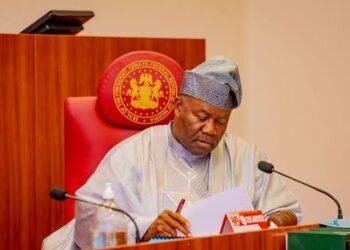Minister of Information and National Orientation, Mohammed Ibrahim has said that Nigeria’s tax administration system is long overdue for reform.
He said the existing tax laws are outdated on account of design and implementation flaws as well as the general attitudes of taxpayers toward taxation.
He made this known while speaking at a national discourse on the current tax reform bills organized by Nigerian Institute of Public Relations,Kaduna state chapter held in Kaduna on Saturday.
Speaking on the theme, “Tax Reform: The Role of Public Relations in fostering Constructive Dialogue for National Economic Renaissance”, the Minister noted that the ongoing review of the country’s tax laws and realities is timely and crucial, especially as part of a larger set of macroeconomic reforms aimed at setting the country on an irreversible path of growth and development.
According to him, “The full details of the new tax bills are available in the public domain – one must commend the Presidential Committee on Fiscal and Tax Reform for an excellent job in this regard, in terms of public engagement – so I will not attempt to go over these details again here.
“What I will say is that it is very inspiring and heartwarming to see Nigerians from all walks of life coming out to express their views and opinions on these matters of critical national importance, as such is the very essence and meaning of democracy.
In spite of the challenge of trust deficit that tends to crop up around matters of governance in Nigeria, we have still been able to have what can be adjudged as robust debate on this sensitive issue.
“President Tinubu has also been very clear that the Executive will listen to and work with all stakeholders to ensure that all concerns are duly and comprehensively addressed.
“We will continue to ensure open lines of communication and engagement with the National Assembly and all other stakeholders on these taxation bills.
“We are all in this together, as one people, one nation, and just as we are being called upon to make collective sacrifices, we will also collectively reap the abundant social and economic benefits of all of these necessary reforms.
Also, the minister affirmed that President Bola Ahmed Tinubu continues to implement an ambitious fiscal reform agenda that will devolve more resources to Nigeria’s State and Local Governments, and ultimately to the Nigerian people, in the spirit of true federalism, citizen engagement will become ever more critical.
“Those of us who manage communications for the Federal Government understand that we have a lot of work on our hands. We are up to the task, and we will continue to deploy innovative and comprehensive mechanisms to provide the public with insights and enlightened information that will bolster public trust and confidence in the reform narratives of the Renewed Hope agenda.
“We will also be looking to count on the strong support of the NIPR, among many other stakeholders. Which is why this dialogue is very much welcome, and commendable.
“In closing, let me make it clear that, even with our keenness for fundamental reform of Nigeria’s governance and fiscal systems, the Tinubu administration will never do anything to undermine the ideals of participatory democracy.
“The current mandate and responsibility that we have for governing and reforming Nigeria at this time came by way of democracy, and we will continue to live up to those very high democratic standards and expectations.”










